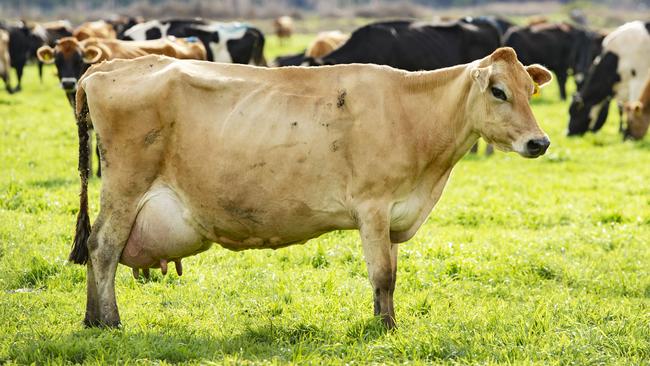Global Dairy Trade: Milk market weakens after March highs
Ten out of the past 12 Global Dairy Trade sessions have entered negative territory after a record March. Experts say China is a key factor.
International dairy trade continues to slide with a key index registering another price decline in recent days.
The headline figure for the Global Dairy Trade index fell by nearly three per cent to hit $US3768 ($A5372), the latest in a long line of falls since record highs in March.
Whole milk powder – which has the biggest influence on Fonterra’s farmgate milk price in New Zealand – slipped 3.5 per cent to an average $US3417 ($A2397) per megatonne.
The anhydrous milk fat category fell the furtherest in this week’s trading session – slipping 9.8 per cent, to an average $US4990 per megatonne.

China – Australia and New Zealand dairy’s largest export destination – continues to pursue a zero-Covid strategy, with a snap lockdown in Shanghai generating headlines in recent days.
Fonterra chief executive Miles Hurrell said coronavirus lockdowns in China had contributed to the string of GDT fortnightly drops.
“(The) softening demand out of China played its part overnight- we’re seeing that with the (GDT) drop across the board,” he told New Zealand radio.
“China is one of those markets – when it works, it works very well. But their Covid restrictions are making it a little more difficult for us.
“We’ve seen a general slowdown in their macroeconomic situation and (China’s) general slowdown globally on a commodities front, and we feel that pain.”
Red Sky Agricultural director David Beca said Australian dairy would experience a “reversion to the mean” of approximately $7 a kilogram milk solids next year.
“We are experiencing historically high farmgate prices in southeastern Australia. Underlying conditions strongly suggest this won’t last,” he said.
“There will be a reversion to the mean and I’d say the mean price is about $7 (a kilogram of milk solids). It’s clear that across the world, we’re heading towards at least tough economic times, probably a recession. That will mean demand for dairy will fall further.”
Westpac agri-economist Satish Ranchhod forecast increased demand for dairy from China in the medium term.
“In the short term, commodity prices are under pressure and global dairy prices are being similarly impacted,” he said.
“In addition, Fonterra lifted whole milk powder auction volumes for August and September. “This move may have increased the downward pressure on prices at least temporarily.
“However further out, we anticipate that very weak global supply combined with rebounding Chinese demand will support global dairy prices.”
Mr Beca said there were some silver linings for Australian dairy around the dark economic clouds.
“The weather in Europe, the weather in parts of the United States until recently- these factors have meant they too have had a reduction in their national milk pools,” he said.
“So oversupply is not as big of a concern at present as it might have been.”





